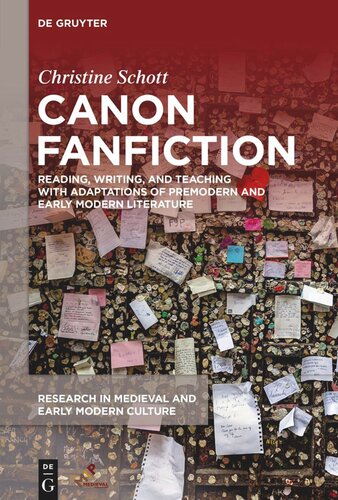

Most ebook files are in PDF format, so you can easily read them using various software such as Foxit Reader or directly on the Google Chrome browser.
Some ebook files are released by publishers in other formats such as .awz, .mobi, .epub, .fb2, etc. You may need to install specific software to read these formats on mobile/PC, such as Calibre.
Please read the tutorial at this link: https://ebookbell.com/faq
We offer FREE conversion to the popular formats you request; however, this may take some time. Therefore, right after payment, please email us, and we will try to provide the service as quickly as possible.
For some exceptional file formats or broken links (if any), please refrain from opening any disputes. Instead, email us first, and we will try to assist within a maximum of 6 hours.
EbookBell Team

4.7
56 reviewsSeveral scholarly fields investigate the reuse of source texts, most relevantly adaptation studies and fanfiction studies. The limitation of these two fields is that adaptation studies focuses narrowly on retelling, usually in the form of film adaptations, but is not as well equipped to treat other uses of source material like prequels, sequels, and spinoffs. On the other hand, fanfiction studies has the broad reach adaptation studies lacks but is generally interested in "underground" production rather than material that goes through the official publication process and thus enters the literary canon. This book sits in the gap between these fields, discussing published novels and their contribution to the scholarly engagement with their pre- and early modern source material as well as applying that creative framework to the teaching of literature in the college classroom.